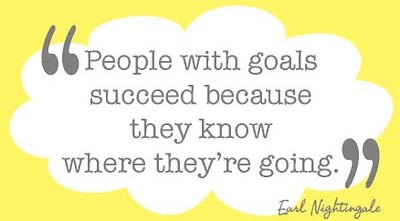Success Advice
How to Set Your 2015 Goals Like An Olympian
It’s the end of the year, and like most of us who are truly “addicted to success”, we are already thinking about the year ahead, what it will mean to us personally and professionally, and what goals we can set in order to get the most out of the next 365.25 days.
Personally, I spent a majority of my night yesterday researching various ways my mentors, peers, co-founders, and favorite thought leaders set their own 2015 goals so I could do the same, and perhaps the most interesting feedback was that from my friend Sam Mikulak.
 Sam is an Olympic gymnast who represented Team U.S.A. in the London 2012 games and has been competing at an international level since 2007 (when he was only 15 years old).
Sam is an Olympic gymnast who represented Team U.S.A. in the London 2012 games and has been competing at an international level since 2007 (when he was only 15 years old).
Sam is also a 7-Time NCAA Champion, having won titles individually and with his team at the University of Michigan, and he is a budding entrepreneur as well who is finishing a successful Kickstarter campaign for his new company MateBros which sells a special blend of Yerba Mate tea that Sam and his teammates have used for years to both refuel for competitions and spark new friendships off the gym floor.
Needless to say, Sam is one pretty successful guy, so I listened intently when he shared with me how he sets his goals for the year. He broke his goal-setting habits down into three parts for us…
1. Everyday Goals
His everyday goals are pretty simple, and may not be what you’d expect. “Smile, be happy, be proud, be respectful,” he told me. Essentially, these everyday goals aren’t necessarily about what you produce or “do” each day, but more about what type of person you need to be and state you must be in so that you can get the results you want and live well.
Sam’s advice here is pretty in-line with that of Tony Robbins, who preaches that – in order to achieve breakthroughs in your business, relationships, finances, or any area of your life – you need to properly align your strategy, your story, and your state.
Sam’s everyday goals help him get in the proper state to grow a business, train at the highest levels of his sport, and ultimately represent our country on an international scale.
2. Short Term Goals
The next two types of goals are very simple, and I’m sure you’ve thought about them in one way or another before.
Sam sets short-term goals in order to get ahead throughout the year, and breaks down these goals into three different time blocks. He asked, rhetorically, “Where do I want to be in 4 weeks? In 8 weeks? In 12 weeks?”
Essentially, Sam is breaking down his short term goals with each month, and doesn’t look beyond one quarter from now in terms of accomplishing his short term goals. In fact, it is this laser-like focus on the “now” that allows Sam to balance ambitions in the business and sports worlds, two equally challenging fields of play.
Take a minute now to think about what your 4 week, 8 week, and 12 week goals are…How are you going to get the most of Q1 in 2015. Think about that first, and then we will expand to 2015 in total, and even beyond.
3. Long Term Goals
Again, pretty simple as far as what Sam’s goal-setting breakdown is (and we will get to “how” he actually sets these goals in a minute…), but the final piece in the year-planning puzzle is setting long term goals for yourself. He asked me, again, “Where do I want to be in 1 year? In 2 years? In 5 years?” Easy, right? I think so…but before you go, read the most important part of this article, which is how Sam actually goes about setting these goals…

The Strategy:
Here’s what separates how an Olympic athlete and 7-Time NCAA Champion’s goal-setting strategy differs from most. As he explained to me,
“I start out by making my long term goals, and then make my short term goals and everyday goals. I do it this way because the short term goals and daily goals should be a byproduct of the long term goals, a reflection of how I will get there. Too often people set goals ambiguously and do not realize that their short term and daily goals do not align with their long term goals. Write your goals out on paper with arrows so you make sure you’re doing it right.”
As an example, say that my 1 year goal was to lose 30 pounds (which I did successfully in 2014 myself). Using Sam’s guideline, I’d first set this goal, and then work backwards. “OK, what’s my 12 week, 8 week, and 4 week goals now.”
Perhaps (just to use easy numbers) my goals here would be to lose 15 pounds, 10 pounds, and 5 pounds respectively. And then, in order to accomplish these, I’d set a daily goal – a state goal – to be mindful about everything I put in my body and every health decision I make (and perhaps to drink MateBros everyday).
Actually, in regards to MateBros, Sam set his 12 week goal for Q4 of 2014 to raise $37,000 for the new company, and as you can see on Kickstarter, he is getting pretty damn close (there’s less than 3 days left in the campaign, and he’s almost there!).
He hasn’t told me what his everyday goal has been recently, but I’m sure it has something to do with being grateful for all the support he and his co-founders have received, as well as resolve to close out a successful campaign.
And there you have it! This is how an Olympian, 7-Time NCAA Champion, and successful entrepreneur sets his goals in order to get the most out of his time.
Joel, myself, and everyone from Addicted2Success.com wish you a super successful 2015!!!
Business
The Simple Security Stack Every Online Business Needs
Most small businesses are exposed online without realising it. This simple protection stack keeps costs low and risks lower.

Running a business online brings speed and reach, but it also brings risk. Data moves fast. Payments travel across borders. Teams log in from homes, cafés, and airports. (more…)
Business
If Your Business Internet Keeps Letting You Down, Read This
From smoother operations to better security, dedicated internet access is quietly powering today’s high-performing businesses.

Today, a dependable internet service is the bedrock for uninterrupted business operations. Many organizations rely on stable online connections for communication, data transfer, and customer interaction. (more…)
Did You Know
How Skilled Migrants Are Building Successful Careers After Moving Countries
Behind every successful skilled migrant career is a mix of resilience, strategy, and navigating systems built for locals.

Moving to a new country for work is exciting, but it can also be unnerving. Skilled migrants leave behind familiar systems, networks, and support to pursue better job opportunities and a better future for their families. (more…)
-

 News2 weeks ago
News2 weeks agoBrandon Willington Builds 7-Figure Business by Ignoring Almost Everything
-

 Health & Fitness3 weeks ago
Health & Fitness3 weeks agoWhat Minimalism Actually Means for Your Wellness Choices
-

 Did You Know3 weeks ago
Did You Know3 weeks agoWhy Most Online Courses Fail and How to Fix Them
-

 Business3 weeks ago
Business3 weeks agoIf Your Business Internet Keeps Letting You Down, Read This
-

 Business1 week ago
Business1 week agoEntrepreneur’s Guide to Pay Stubs: Why Freelancers and Small Business Owners Need a Smart Generator
-

 Business5 days ago
Business5 days agoThe Salary Shift Giving UK Employers An Unexpected Edge
-

 Business7 days ago
Business7 days agoThe Simple Security Stack Every Online Business Needs
-

 Scale Your Business6 days ago
Scale Your Business6 days ago5 Real Ways to Grow Your User Base Fast



























4 Comments